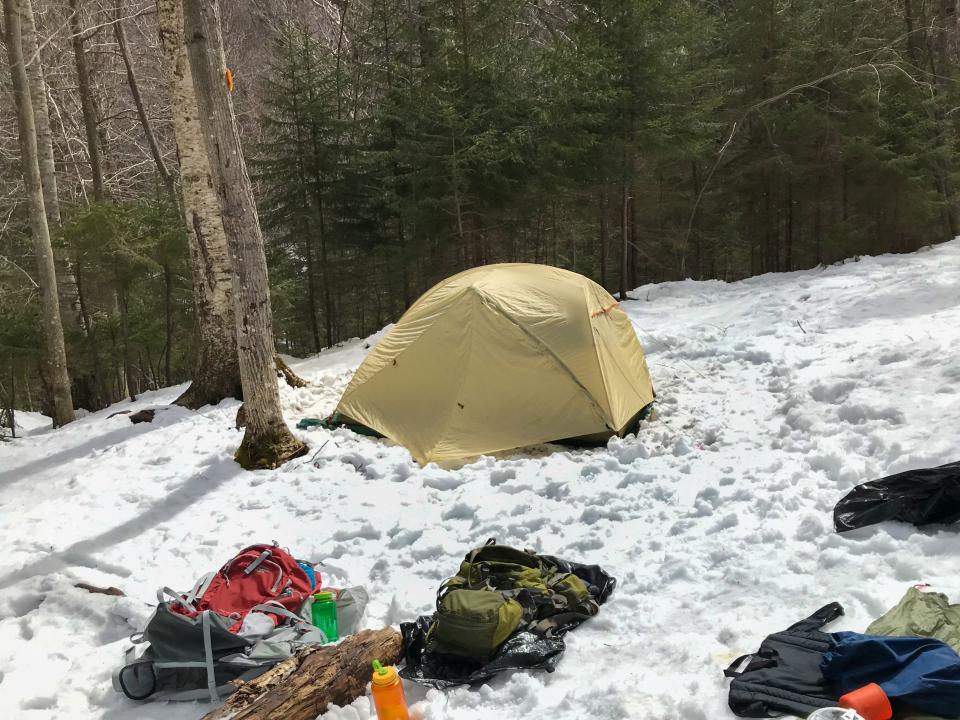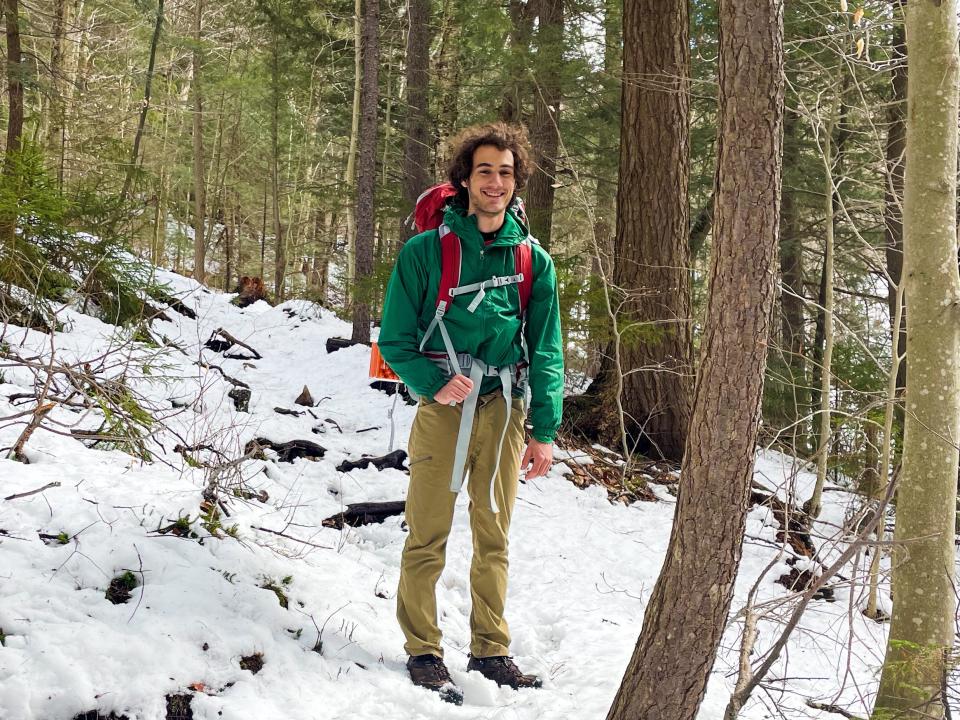I spent 73 days camping in a tent outdoors and in national parks. The unexpected perks made me never want to book a hotel again.

Before my trip, I had only been camping once before and I wasn't sure what to expect.
Getting adjusted was rough at first, but I ultimately felt more connected to nature.
I would choose a tent over a hotel every time when vacationing near national parks.
In summer 2022, I spent 10 weeks living out of a tent in Oregon as a crew member for AmeriCorps. Before, I'd only been camping once.

I heard about AmeriCorps from a friend who did a similar program the previous year. I'd just graduated college and wanted to see if conservation work was a potential career path for me.
I was hired by Northwest Youth Corps, an AmeriCorps affiliate, to do trail building and forest conservation work throughout several regions in Oregon, over 10 weeks. For the entirety of that period, I would be staying in a tent.
While I love long hikes and nature, I'd only been overnight camping once before, so living out of a tent would be a new experience for me.
I was nervous in the beginning, but within weeks, I loved camping so much that I never wanted to stay in a hotel again.
My first week was spent training in the Willamette National Forest, and it was hard to adjust to my sleeping bag and tent.

My first week with the conservation crew was at Black Canyon Campground, a campsite about 35 miles outside of Eugene. Our group of five was given trail-blazing tools and a truck for traveling to different worksites.
Throughout the week, we learned about trail building and how to use a crosscut saw to remove fallen trees from hiking paths. In the evenings, we learned the basics of cooking, cleaning, and staying safe in the outdoors.
I pitched my two-person tent, which was spacious, but I missed the comforts of my usual bed. I bundled a pile of clothes in a stuff-sack for my pillow, and used a foam pad beneath my sleeping bag that was fairly thin. I could still feel the cool and damp ground beneath me at times, which was uncomfortable.
But, since it rained nonstop that first week, I quickly came to appreciate my tent as an essential shelter, and the only place where I could truly stay dry.
Switching to a new campsite showed me that camping could be more fun than staying in a hotel room.

After five days at Black Canyon Campground, my crew traveled to Detroit, Oregon. We stayed at a campsite called Shady Cove, which was closed to the public due to wildfires in 2020.
Over the next four weeks, we worked to repair the campsite by removing fallen trees from the trails, picking up litter, and installing new trail signs.
After cleaning out the site, I saw the area was full of natural beauty. A nearby river under a big bridge had some of the clearest water I'd ever seen, and the campsite had trails to explore in my off-time.
I quickly grew to prefer the natural amenities of this campsite over those I'm more used to at hotels. A dip in the swimming hole felt more refreshing than a pool, and a hike in the outdoors was more thrilling than a treadmill in a hotel gym.
After two weeks, I liked my tent. I forgot what a normal bed felt like, and was happy for the privacy the tent gave me in the evenings.

My tent quickly became my happy place at the end of the day. After eight to 10 hours of trail work and other manual labor, my sleeping pad and bag felt like a giant marshmallow. I was usually so tired, I'd open a book to read but would instead fall asleep to the sound of the river.
I also treasured the privacy my tent gave me. I loved my crew, but spending all of my waking hours with the same people was draining at times. Even though the walls of my tent were thin, it provided a physical sense of privacy where I felt safe and I could enjoy alone time.
On weekends off, my crew drove to national parks. I was surprised to find overnight camping for less than $25, although we often camped for free.

After a few weeks at Shady Cove, my crew and I drove to spend our weekend off at Crater Lake National Park. There, a fellow conservation crew let us stay with them for free at a campsite for National Park Service employees. I also noticed public camping in a campground nearby that charged $21 per night for tents and $31 for RVs.
Over that weekend, I realized camping was both an efficient and beautiful way to experience national parks. I liked being steps away from hiking trails, plus I saved money by camping instead of staying in hotels, and spent less on gas by not having to driving in and out of the park each day.
I thought I felt more connected to nature in the park camping overnight than I would have sleeping in a hotel. By the end of the trip, I knew I'd choose a public campground over a night in a hotel.
In the past I've spent hundreds on hotels, but by camping I was able to stay in or just outside national parks for free.

 Yahoo Autos
Yahoo Autos 